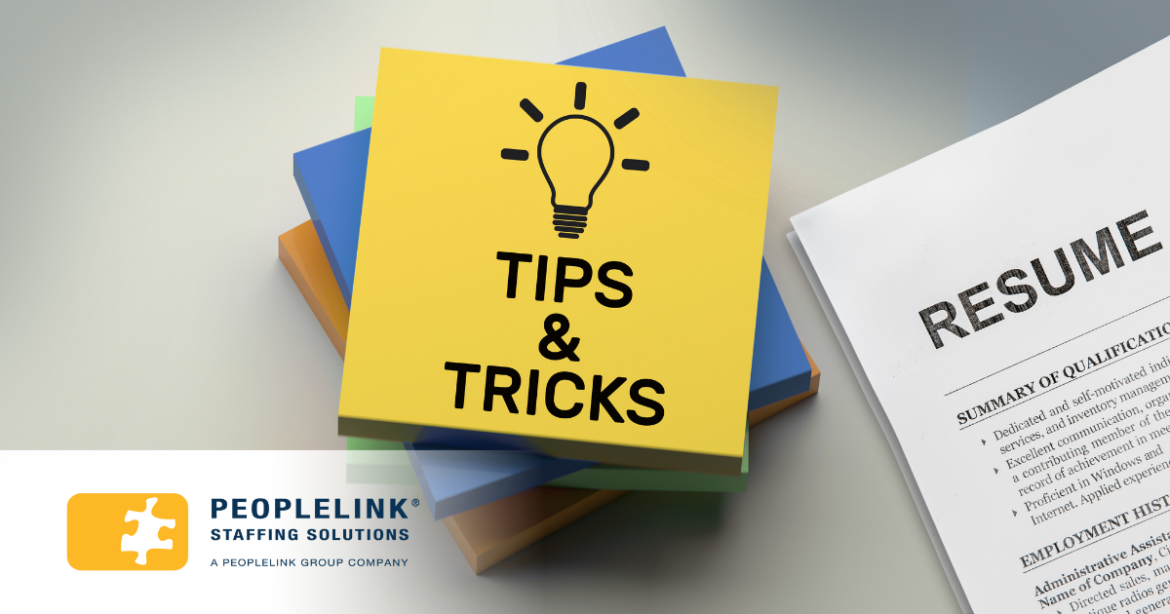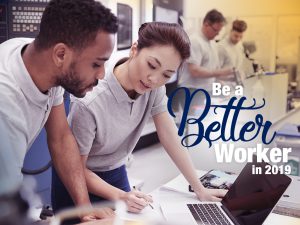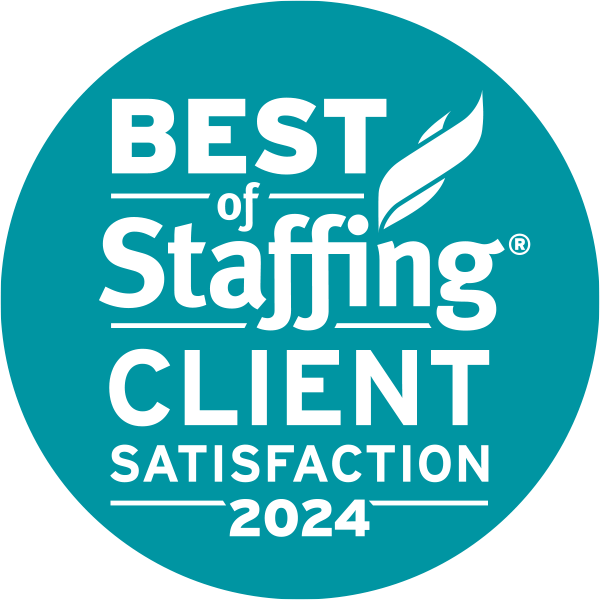
Preparing for an interview can feel overwhelming, whether it’s your first or your fiftieth. Making a strong impression requires more than just a polished resume; it’s about showcasing your readiness, confidence, and professionalism. With careful preparation and attention to detail, you can set yourself apart as a standout candidate.
Follow these expert tips to prepare for your next interview and position yourself for success.
1. Research the Company
Before your interview, invest time in thoroughly researching the organization – now is the time to go deeper into the research; more than you did when you applied. Start by reviewing their website to understand their mission and values, which you can usually find on their About Us page. Read about their products and services and familiarize yourself with the leadership team and their bios. Read the company blogs to learn more about their expertise and to see who they market information to.
This information not only helps you to evaluate if the company is a good fit, but also equips you with valuable insights to tailor your interview responses. Demonstrating knowledge of the company shows initiative and genuine interest in the role.
To take your research further:
- Read news articles and press releases to stay informed about recent accomplishments, new initiatives, or leadership changes. Mentioning these during your interview can demonstrate your awareness and enthusiasm for the company’s work.
- Leverage professional networks and social media platforms like LinkedIn to learn more about the company culture, connect with current employees, and gather insider perspectives. If they have a YouTube channel, watch their product or service videos. This can also give you an edge when discussing the role’s expectations.
- Research industry trends by analyzing competitors, looking for market trends and challenges, and exploring how the company stands out in comparison.
- Review the job description thoroughly and cross-reference the job description with the company’s values and goals to anticipate how the role aligns with their strategy. Highlight keywords or responsibilities that match your experience.
With this information, you will enter the interview informed, confident, and ready to align your skills and experiences with the organization’s needs.
2. Dress for Success – Even if the Interview is Virtual
The reality is that appearances matter when it comes to interviewing, so dressing for the interview requires care and thought. This is no less critical for virtual interviews. In fact, much of the body language that takes place in person is not always captured on camera, so what you’re wearing does a lot of the heavy lifting.
Research the company’s dress code and choose an outfit that reflects their culture while maintaining a professional appearance. When you feel well-dressed and put-together, it can improve your confidence, helping you focus on the interview rather than worrying about your appearance. Remember that inappropriate attire can detract from your qualifications and answers, shifting focus to your appearance instead of your skills.
In industries with formal environments, opt for a tailored suit or business attire. For creative or casual workplaces, business-casual attire may be appropriate, but it is always better to slightly overdress than underdress for an interview.
Remember:
- Prioritize neatness: Ensure your clothes are clean, well-fitted, and wrinkle-free.
- Keep it subtle: Avoid overly bold patterns or accessories that may distract the interviewer
- Comfort matters too: While looking professional is key, make sure your outfit is comfortable. You’ll want to focus on the conversation, not your clothing.
Your appearance should convey respect for the opportunity and confidence in your ability to excel in the role.
3. Plan for Remote or Virtual Interviews
Ensure your technology is set up and tested in advance. Having technical difficulties during the interview or being unable to connect in the first place can torpedo your chances of landing the job. Choose a quiet, well-lit space for the interview. Practice “talking to” the camera and speaking clearly.
4. Prepare Thoughtfully for Questions
Anticipating the questions you will be asked can help you prepare thoughtful, well-structured responses.
The first step is to prepare a concise “elevator pitch” that summarizes your background, skills, and what makes you a strong candidate for the position. Use this pitch to answer open-ended questions like “Tell me about yourself” or “Why should we hire you?”
Be familiar with every detail on your resume and be prepared to elaborate. This is the foundation of what you will be asked about and being comfortable discussing the details of your experience will ease your nerves.
Then use your research to identify likely questions based on the role and industry. Practice answering them aloud to refine your delivery and clarity.
For behavioral interview questions, use the STAR method to structure your responses:
- Situation: Describe the context of the challenge or task.
- Task: Explain your specific responsibility or goal.
- Action: Detail the steps you took to address the task, highlighting skills and strategies.
- Result: Share the outcome, including measurable achievements or lessons learned.
Anticipate questions about challenges. Prepare to discuss gaps in employment, career changes, and even past mistakes. Frame your responses positively, focusing on growth and lessons learned.
Rehearse these responses in a mock interview setting, ideally with a trusted friend or mentor, to gain confidence and identify areas for improvement. Being well-prepared ensures that you can communicate your qualifications with poise and professionalism.
5. Showcase Your Skills and Achievements
Your interview is your opportunity to demonstrate the value you bring to the organization. Go beyond listing your skills—connect them to real-world outcomes. For example:
- Highlight specific projects where you made a measurable impact.
- Share challenges you’ve overcome and the solutions you implemented.
- Align your strengths with the company’s goals and needs.
Quantify your accomplishments whenever possible. Statements like, “I led a project that increased efficiency by 20%,” resonate more than vague descriptions. By presenting concrete examples, you’ll leave a lasting impression as a results-driven candidate.
6. Ask Smart Questions
Not only do you want to make a good impression, but you also want to determine if YOU want to work for THEM. Prepare insightful questions that demonstrate your genuine interest and curiosity about the role and organization while also using this opportunity to make an informed opinion about them.
Consider asking about:
- The company’s strategic goals or recent initiatives.
- Team dynamics and collaboration within the role.
- The company’s approach to navigating challenges in the industry.
Some examples include:
- “What does success look like in this role?”
- “How does this team collaborate to achieve its goals?”
- “What opportunities are there for professional growth?”
Avoid questions that can be answered with a quick search or imply a lack of preparation. Thoughtful, well-researched inquiries signal that you’ve put effort into understanding the company and are invested in the opportunity.
7. Conclude on a Strong Note
As the interview wraps up, express your enthusiasm for the role and ask about the next steps in the hiring process. This shows initiative and underscores your eagerness to move forward.
For example, you might say:
“I’ve really enjoyed learning more about the company and this position. Based on our conversation, I am even more excited about the opportunity to contribute to your team. Could you share what the next steps in the process might look like?”
This approach reinforces your interest and leaves the interviewer with a positive impression of your professionalism and enthusiasm.
If you have any unanswered questions, now is the time to ask, but if something does occur to you afterward, you can ask it in your follow-up thank you email.
Final Thoughts
Interviews are a chance to highlight your best self—your skills, experiences, and readiness to contribute to a team’s success. By researching the company, dressing appropriately, practicing your responses, and engaging thoughtfully with your interviewer, you will be well-prepared to leave a lasting impression.
Ready to put your interview skills to the test? Explore our current opportunities and take the next step toward your dream job!



